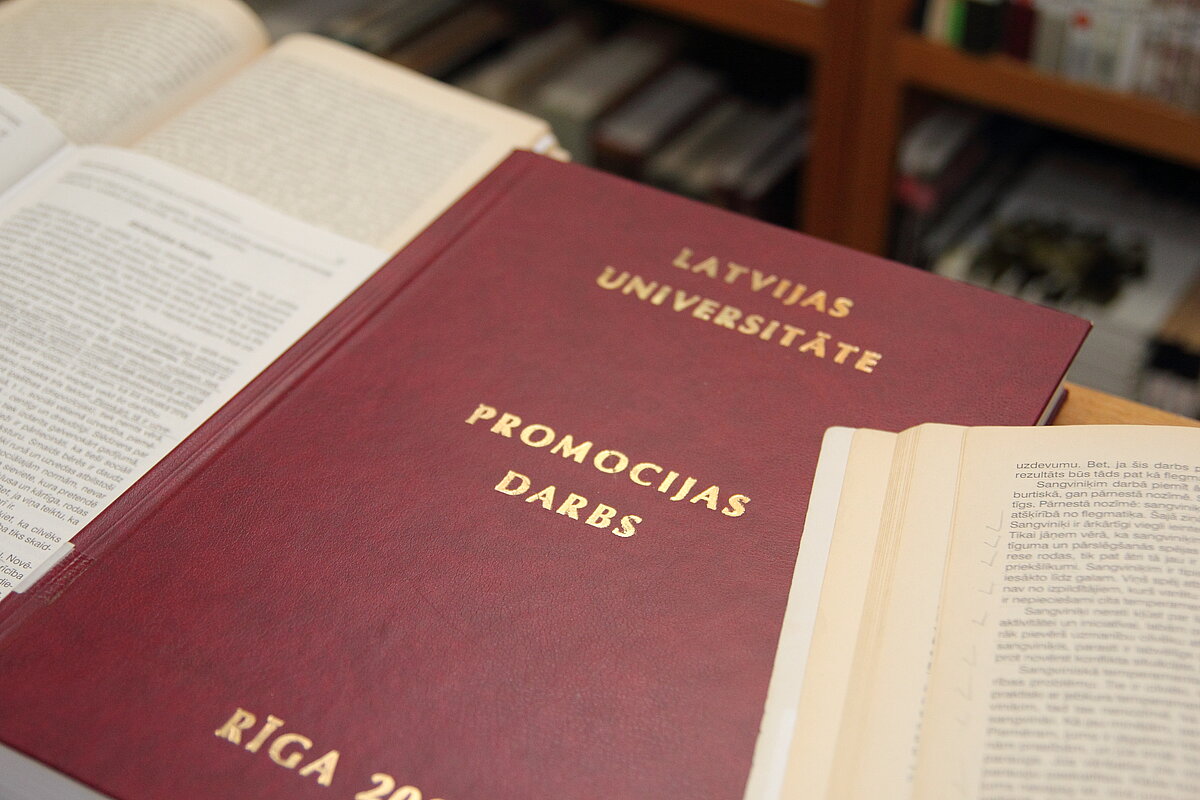
The Doctoral School of the University of Latvia (UL) began its work on 15 July. The main tasks are the implementation and promotion of all doctoral study programmes, ensuring the career development of young researchers, monitoring and improving the quality of doctoral studies, as well as promoting international cooperation. The new model, which will be gradually implemented at UL by the end of 2026, envisions a transition to employment-based doctoral studies and the strengthening of study interdisciplinarity.
"The new doctoral model stipulates that the doctoral student must be actively involved in their respective scientific field and receive appropriate, stable, and predictable remuneration throughout their doctoral studies. The Doctoral School will operate as a structural unit of UL, providing the necessary resources and quality control for preparing doctoral students according to contemporary requirements. This includes the development of internationally recognized doctoral theses and the acquisition of skills for broader competitiveness in the job market. UL's doctoral programmes will be implemented in collaboration with UL faculties and external partners, particularly research institutes, departments, and laboratories, in line with the scientific discipline and interdisciplinarity of the doctoral programs," explains UL Vice-Rector for Research Guntars Kitenbergs.
Each year, about 50 new scientists obtain their doctoral degrees from UL. This year, nearly 100 new doctoral students are expected to be admitted at the university.
The UL Doctoral School will offer a compelling and high-quality academic curriculum, providing a comprehensive range of knowledge essential for top-tier intellectual work, from cultural history and philosophy to statistics and the writing of publications and projects. Doctoral students will have broader opportunities to receive remuneration and, from the start of their research, will be involved in academic activities. An adapted promotion council (individual promotions) will facilitate the implementation of interdisciplinary research. Unified regulations will reduce uncertainty and ambiguity, making the system more transparent and comprehensible. There will also be greater flexibility in evaluating the competencies of doctoral candidates and aligning them with current industry trends.
Amendments to the Law on Higher Education Institutions mandate the introduction of the new doctoral study model and the establishment of the Doctoral School as a university structural unit by 1 September 2024. The regulations for the UL Doctoral School are expected to be approved in July. Doctoral students who began their studies before the end of August this year must obtain their PhD degree by the end of 2026, in accordance with the Law on Higher Education Institutions and Law on Scientific Activity. Those starting their studies from 1 September 2024, will be awarded their degrees in accordance with the new requirements of the Law on Higher Education Institutions.
So far, UL has implemented an internal grant system for doctoral studies and organized a series of educational and informational seminars, including workshops on time management, stress management, professional burnout, creating digital profiles, scientific networking and publishing as well as science communication. Experience exchange webinars have also been held, introducing doctoral students and scientific supervisors to study and research experiences at various universities worldwide.
More information about doctoral study programmes and admission procedures can be found on the UL website.
The establishment of the UL Doctoral School is one of the activities in the Recovery and Resilience Facility project "Internal and External Consolidation of the University of Latvia" (No. 5.2.1.1.i.0/2/24/I/CFLA/007), implemented by the UL and the BA School of Business and Finance. This initiative continues the enhancement of doctoral studies at the UL, which began under the European Social Fund project "Strengthening the Capacity of doctoral studies at the University of Latvia within the New Doctoral Model" (No. 8.2.2.0/20/I/006).

 LU konference
LU konference
